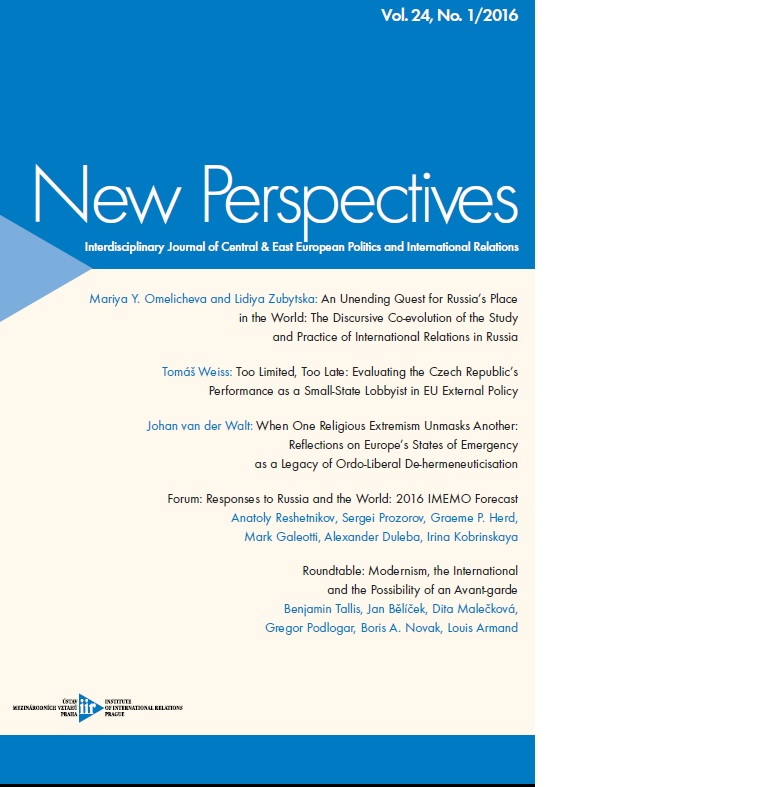When One Religious Extremism Unmasks Another: Reflections on Europe’s States of Emergency as a Legacy of Ordo-Liberal De-Hermeneuticisation
When One Religious Extremism Unmasks Another: Reflections on Europe’s States of Emergency as a Legacy of Ordo-Liberal De-Hermeneuticisation
Author(s): Johan Van der WaltSubject(s): Politics / Political Sciences
Published by: Ústav mezinárodních vztahů
Keywords: Intervention; terrorism; Agamben;
Summary/Abstract: It is quite possible that many Europeans – government officials, citizens and other residents of Europe – assess the massacres committed in Paris in January and November 2015 as criminal incidents whose prevention could have been achieved, as far as such a prevention is humanly possible, by more adequate policing. There are no conclusive grounds available for dismissing this assessment as spurious. Moreover, the relatively unproblematic public ac-ceptance of the discourse of the state of emergency that slipped into the breach opened-up by these awful events would seem to indicate widespread support for this assessment. There are, nevertheless, many other citizens and residents, with perhaps also some government officials among them, who do not find this assessment convincing. There is another wide-spread view in Europe that considers the assessment of acts of jihadist terrorism as mere instances of criminality as a grave over-simplification of the matter that contributes nothing to a deeper understand-ing of the socio-political problem that one is facing here. According to this view, the assessment of these acts “as acts of war by an enemy of the people” also contributes no significant insight in this regard, unless one is prepared to accept that France has spiraled into a civil war in which (some of) the people have become an enemy of (the rest of) the people. This Intervention article gives a voice to this other view. As will become clear, it draws much support for the position it takes from Giorgio Agamben’s assessment of the politics of suppressing crime through adequate polic-ing as a politics that reacts only to the consequences of a deeper malaise without endeavouring to identify and re-solve the causes of this malaise-
- Issue Year: 24/2016
- Issue No: 1
- Page Range: 79-101
- Page Count: 24
- Language: English
- Content File-PDF

